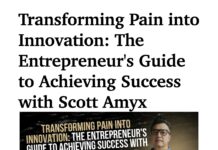IBM and JDRF have come together to comprehensively study and analyze several years of voluminous data available for Type 1 diabetes (I1D) among children. JDRF is at the forefront of T1D research global and plans to use IBM’s expertise in machine learning to unravel the risk factors behind T1D occurrence. IBM scientists will use the artificial intelligence (AI) technology to analyze at least three data sets.
Over 1.25 million Americans suffer from Type 1 diabetes. It has no cure and is only manageable as a disease. JDRF envisions a world that has no T1D and this partnership brings the organization closer to this mission. Using AI, scientists hope to find patterns that will pave way to delay, may be prevent some day, Type 1 diabetes among children. A collection of data from global research projects will be used to create a foundational set of features. The models produced from the research will be the basis for quantifying T1D risks.
Looking Forward to New Developments
As the leading funder of T1D research, JDRF’s partnership with IBM will uncover previously unseen data trends. JDRF supports researchers worldwide. But their previous projects did not analyze data comprehensively. As a result, they were unable to correctly and precisely determine the reason behind children at risk for T1D. Their previous collaboration with the American Diabetes Association in 2016 used cognitive computing to look at clinical and research data.
IBM will be analyzing a massive well of data. Around 40,000 new cases of T1D are diagnosed yearly in the US. Jianying Hu, senior manager and program director of IBM Research’s Center for Computational Health, says every new patient offers new records and data points that can advance disease knowledge. AI can sift through this growing data while delivering results that will be relevant to the industry.
The team’s AI applications expertise in healthcare data will help them reveal hidden insights with JDRF. They also intend to advance precision medicine’s aim to manage and prevent diabetes. Thus this partnership could assist physicians in finding new ways to treat and prevent the disease among children.
Apart from this AI application, JDRF initiated a $42 million fund with an interest in companies that work with artificial pancreas technology, prevention and restoration therapies, among others.


















